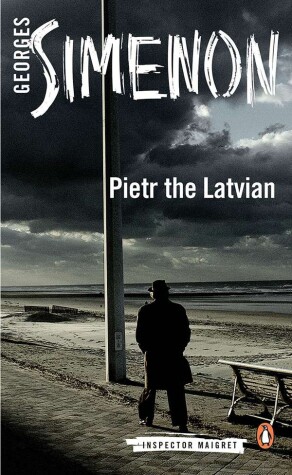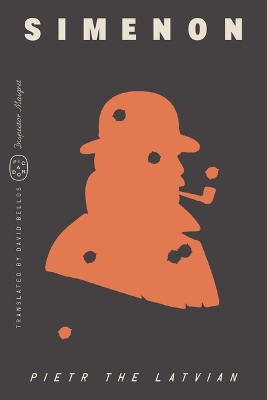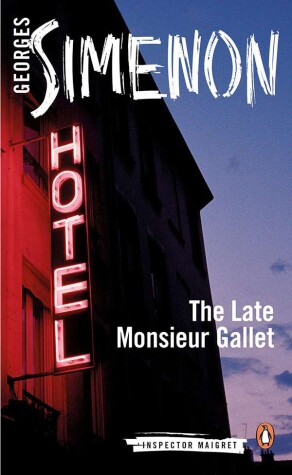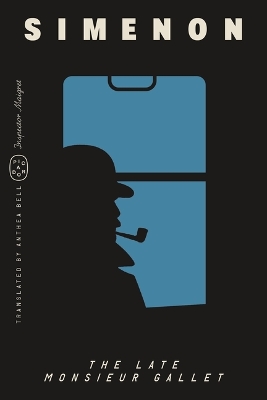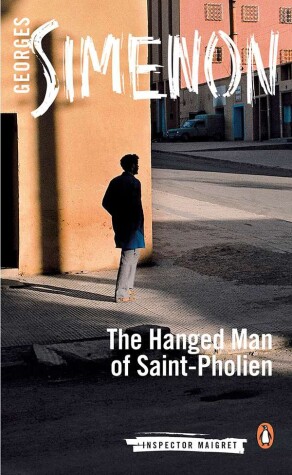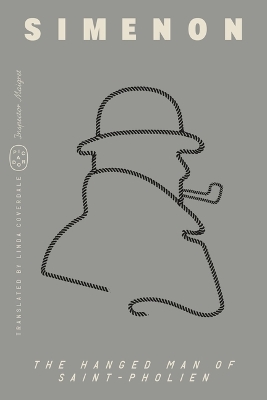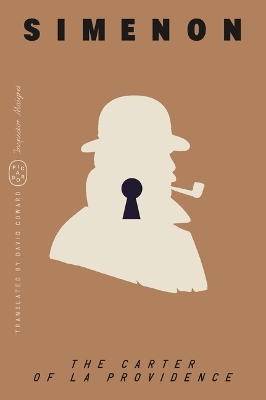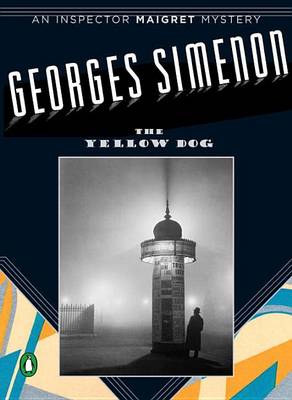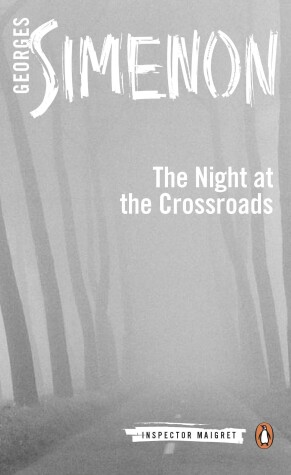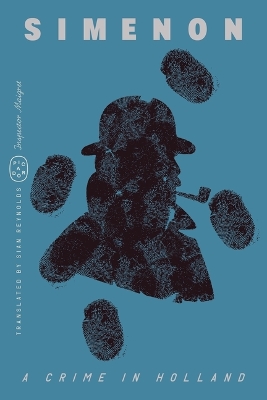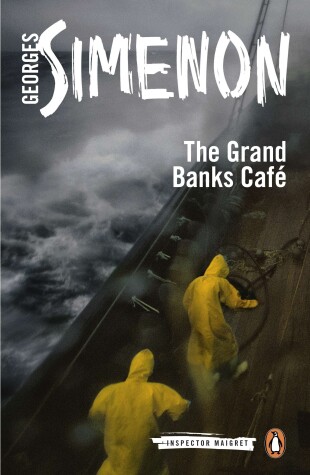Inspector Maigret
93 primary works • 95 total works
Book 1
The first novel which appeared in Georges Simenon's famous Maigret series, in a gripping new translation by David Bellos.
Not that he looked like a cartoon policeman. He didn't have a moustache and he didn't wear heavy boots. His clothes were well cut and made of fairly light worsted. He shaved every day and looked after his hands.
But his frame was proletarian. He was a big, bony man. His firm muscles filled out his jacket and quickly pulled all his trousers out of shape.
He had a way of imposing himself just by standing there. His assertive presence had often irked many of his own colleagues.
In Simenon's first novel featuring Maigret, the laconic detective is taken from grimy bars to luxury hotels as he traces the true identity of Pietr the Latvian.
This novel has been published in previous translations as The Case of Peter the Lett and Maigret and the Enigmatic Lett.
'Compelling, remorseless, brilliant' John Gray
'One of the greatest writers of the twentieth century' Guardian
Book 1
Book 2
The second book in the new Penguin Maigret series: Georges Simenon's devastating tale of misfortune, betrayal and the weakness of family ties, in a new translation by Anthea Bell.
Instead of the detail filling itself in and becoming clearer, it seemed to escape him. The face of the man in the ill-fitting coat just misted up so that it hardly looked human. In theory this mental portrait was good enough, but now it was replaced by fleeting images which should have added up to one and the same man but which refused to get themselves into focus.
The circumstances of Monsieur Gallet's death all seem fake: the name the deceased was travelling under and his presumed profession, and more worryingly, his family's grief. Their haughtiness seems to hide ambiguous feelings about the hapless man. In this haunting story, Maigret discovers the appalling truth and the real crime hidden behind the surface of lies.
Penguin is publishing the entire series of Maigret novels in new translations. This novel has been published in previous translations as Maigret Stonewalled and The Death of Monsieur Gallet.
'Compelling, remorseless, brilliant' John Gray
'One of the greatest writers of the twentieth century' Guardian
'A supreme writer . . . unforgettable vividness' Independent
Book 2
Book 3
'Compelling, remorseless, brilliant' John Gray
A first ink drawing showed a hanged man swinging from a gallows on which perched an enormous crow. And there were at least twenty other etchings and pen or pencil sketches that had the same leitmotif of hanging.
On the edge of a forest: a man hanging from every branch.
A church steeple: beneath the weathercock, a human body dangling from each arm of the cross. . . Below another sketch were written four lines from François Villon's Ballade of the Hanged Men.
On a trip to Brussels, Maigret unwittingly causes a man's suicide, but his own remorse is overshadowed by the discovery of the sordid events that drove the desperate man to shoot himself.
This novel has been published in previous translations as Maigret and the Hundred Gibbets and The Crime of Inspector Maigret.
'One of the greatest writers of the twentieth century' Guardian
Book 3
Book 4
'Compelling, remorseless, brilliant' John Gray
What was the woman doing here? In a stable, wearing pearl earrings, her stylish bracelet and white buckskin shoes! She must have been alive when she got there because the crime had been committed after ten in the evening.
But how? And why? And no one had heard a thing! She had not screamed. The two carters had not woken up.
Inspector Maigret is standing in the pouring rain by a canal. A well-dressed woman, Mary Lampson, has been found strangled in a stable nearby. Why did her glamorous, hedonistic life come to such a brutal end here? Surely her taciturn husband Sir Walter knows - or maybe the answers lie with the crew of the barge La Providence.
This novel has been published in previous translations as Lock 14 and Maigret Meets a Milord.
'One of the greatest writers of the twentieth century' Guardian
Book 4
Book 5
Book 5
Book 6
'She came forward, the outlines of her figure blurred in the half-light. She came forward like a film star, or rather like the ideal woman in an adolescent's dream. 'I gather you wish to talk to me, Inspector . . . but first of all please sit down . . .' Her accent was more pronounced than Carl's. Her voice sang, dropping on the last syllable of the longer words.'
Maigret has been interrogating Carl Andersen for seventeen hours without a confession. He's either innocent or a very good liar. So why was the body of a diamond merchant found at his isolated mansion? Why is his sister always shut away in her room? And why does everyone at Three Widows Crossroads have something to hide?
Book 6
Book 7
'The father of contemporary European detective fiction' Ann Cleeves
'Just take a look,' Duclos said in an undertone, pointing to the scene all round them, the picture-book town, with everything in its place, like ornaments on the mantlepiece of a careful housewife . . . 'Everyone here earns his living. Everyone's more or less content. And above all, everyone keeps his instincts under control, because that's the rule here, and a necessity if people want to live in society.'
When a French professor visiting the quiet, Dutch coastal town of Delfzjil is accused of murder, Maigret is sent to investigate. The community seem happy to blame an unknown outsider, but there are people much closer to home who seem to know much more than they're letting on: Beetje, the dissatisfied daughter of a local farmer, Amy van Elst, sister-in-law of the deceased and a notorious local crook.
This novel has been published in a previous translation as Maigret in Holland.
'Compelling, remorseless, brilliant' John Gray
'One of the greatest writers of the twentieth century' Guardian
Book 7
Book 8
'The father of contemporary European detective fiction' Ann Cleeves
It was indeed a photograph, a picture of a woman. But the face was completely hidden, scribbled all over in red ink. Someone had tried to obliterate the head, someone very angry. The pen had bitten into the paper. There were so many criss-crossed lines that not a single square millimetre had been left visible.
On the other hand, below the head, the torso had not been touched. A pair of large breasts. A light-coloured silk dress, very tight and very low cut.
Sailors don't talk much to other men, especially not to policemen. But after Captain Fallut's body is found floating near his trawler, they all mention the Evil Eye when they speak of the Ocean's voyage.
Penguin is publishing the entire series of Maigret novels in new translations. This novel has been published in a previous translation as The Sailors' Rendezvous.
'Compelling, remorseless, brilliant' John Gray
'One of the greatest writers of the twentieth century' Guardian
'A supreme writer . . . unforgettable vividness' Independent
Book 8
Book 9
'The father of contemporary European detective fiction' Ann Cleeves
'Let's be clear that it's not your professionalism which I question. If you understand nothing, and I mean absolutely nothing, it's because from the very start you've been working with facts which had been falsified.'
Maigret sets out to prove the innocence of a man condemned to death for a brutal murder. As his audacious plan to uncover the truth unfolds, he encounters rich American expatriates, some truly dangerous characters and their hidden motives.
This novel has been published in previous translations as Maigret's War of Nerves and A Battle of Nerves.
'Maigret emerges as a master of intuition and imagination, who moves in a world rendered intensely real in Simenon's incomparable prose' Christopher Hirst, Independent
Book 9
Book 10
The city of Simenon's youth comes to life in this new translation of this disturbing novel set in Liège, book ten in the new Penguin Maigret series.
In the darkness, the main room is as vast as a cathedral. A great empty space. Some warmth is still seeps from the radiators. Delfosse strikes a match. They stop a moment to catch their breath, and work out how far they have still to go. And suddenly the match falls to the ground, as Delfosse gives a sharp cry and rushes back towards the washroom door. In the dark, he loses his way, returns and bumps into Chabot.
Maigret observes from a distance as two boys are accused of killing a rich foreigner in Liège. Their loyalty, which binds them together through their adventures, is put to the test, and seemingly irrelevant social differences threaten their friendship and their freedom.
Penguin is publishing the entire series of Maigret novels in new translations. This novel has been published in a previous translation as Maigret at the "Gai-Moulin".
'Compelling, remorseless, brilliant' John Gray
'One of the greatest writers of the twentieth century' Guardian
'A supreme writer . . . unforgettable vividness' Independent
Book 10
